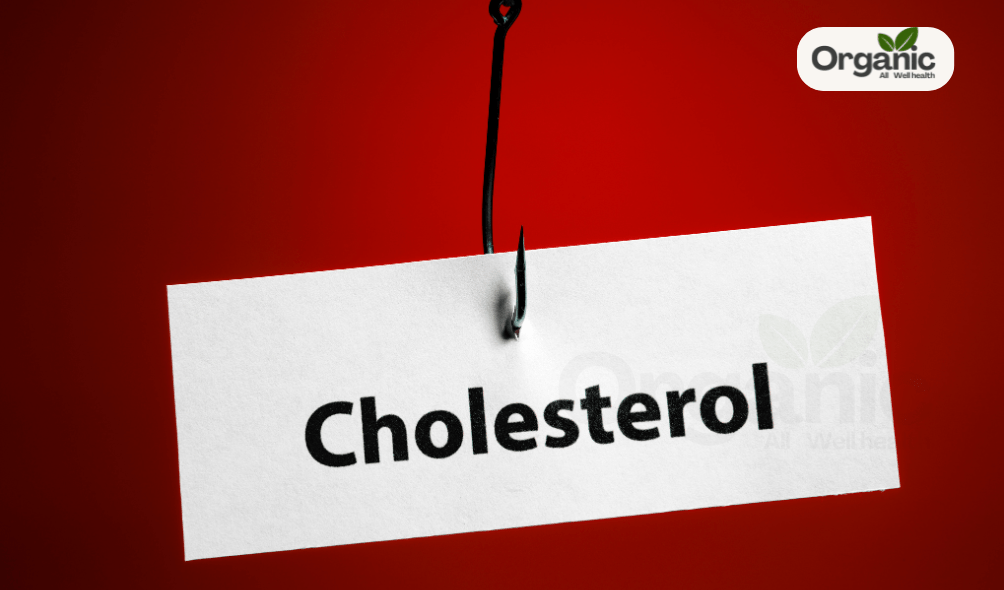Why Is My Cholesterol Still High?

Maintaining a healthy cholesterol level is crucial for long-term heart health. Many people work diligently—eating right, staying physically active, and even taking prescribed medications—but still find themselves asking the same frustrating question: Why is my cholesterol still high? Despite best efforts, high cholesterol levels can persist, often due to underlying reasons that go unnoticed.
What Is Cholesterol and Why It Matters
The Basics of Cholesterol
Cholesterol is a waxy, fat-like substance found in all cells of the body. It plays essential roles, including hormone production, vitamin D synthesis, and cell membrane structure. However, too much of the wrong kind of cholesterol can increase your risk of cardiovascular diseases.
Types of Cholesterol

- LDL (Low-Density Lipoprotein): Often labeled as the “bad” cholesterol. High levels can lead to plaque buildup in arteries.
- HDL (High-Density Lipoprotein): Known as the “good” cholesterol because it helps transport excess cholesterol to the liver for elimination.
- Triglycerides: Another type of fat in your blood that can increase heart disease risk when elevated.
When asking, “Why is my cholesterol still high?”, it’s essential to understand not just the total cholesterol number but the individual components.
Reason #1: You May Have Inherited High Cholesterol
Familial Hypercholesterolemia (FH)
One of the most overlooked reasons behind stubbornly high cholesterol levels is familial hypercholesterolemia (FH). This genetic disorder affects how your body processes LDL cholesterol. If either one or both of your parents had it, you might inherit it too.
How FH Works
With FH, your body lacks the ability to remove excess LDL from your bloodstream efficiently. As a result, cholesterol builds up in your arteries over time—even from a young age.
Physical Signs of FH
- Yellowish deposits on elbows, knees, or around the eyes
- A white or gray ring around the iris (eye)
- Thickened Achilles tendons
People with FH are 20 times more likely to develop heart disease, making early detection and management critical.
Reason #2: You’re Eating Hidden Fats
The Illusion of “Cholesterol-Free” Foods
Many consumers believe that if a food is labeled “cholesterol-free,” it’s heart-healthy. That’s not always the case. Cholesterol-free foods can still be high in saturated and trans fats, which raise LDL levels.
Foods to Watch Out For
- Processed meats (like sausages and bacon)
- Full-fat dairy products
- Fried fast food
- Baked goods like pastries and cookies
Healthy Alternatives
To lower cholesterol, aim to fill your plate with:
- Whole grains
- Leafy greens and colorful vegetables
- Fat-free or low-fat dairy
- Fish like salmon or mackerel
- Poultry (without skin)
- Nuts and seeds
- Oils like olive or canola (avoid tropical oils)
Following these dietary changes can make a significant impact if you’re wondering, “Why is my cholesterol still high?”
Reason #3: Your Exercise Routine Isn’t Effective
Are You Exercising Enough?
Physical activity is one of the best natural ways to raise HDL and lower LDL cholesterol. But are you doing the right kind of exercise?
Recommended Exercise Guidelines
- Frequency: 5 to 7 days a week
- Duration: At least 30 minutes per session
- Type: Aerobic activities that engage multiple muscle groups
Best Cholesterol-Lowering Workouts
- Brisk walking or jogging
- Swimming or water aerobics
- Cycling
- Strength training combined with cardio
- Yoga and pilates (especially for stress reduction)
Warning: Overexertion Risks
Going from zero to intense workouts without preparation can cause injury, which may hinder your ability to stay consistent. A gradual approach yields better long-term results.
Reason #4: Certain Medications Might Be the Culprit
Prescription Drugs and Cholesterol
Sometimes, the answer to “Why is my cholesterol still high?” lies in your medicine cabinet. Several medications can inadvertently raise cholesterol levels.
Common Offenders
- Steroids: Used for conditions like asthma and rheumatoid arthritis
- Retinoids: Acne medications with high vitamin A content
- Beta-blockers and diuretics: Prescribed for high blood pressure
- Hormonal drugs: Certain birth control pills containing progestin
Grapefruit Juice and Statins: A Dangerous Mix
If you’re taking statins and regularly drink grapefruit juice, you might unknowingly reduce the effectiveness of your medication. Grapefruit can interfere with enzymes that help metabolize statins, leading to either increased side effects or decreased efficiency.
Reason #5: Smoking Continues to Undermine Your Health
Smoking’s Direct Impact on Cholesterol
Cigarette smoke contains harmful chemicals that damage blood vessels and interfere with HDL function. One of these chemicals, acrolein, inhibits HDL from removing LDL cholesterol effectively.
Consequences of Smoking on Cholesterol
- Reduction in HDL (“good”) cholesterol
- Elevation of LDL (“bad”) cholesterol
- Promotion of arterial plaque formation (atherosclerosis)
Why Quitting Smoking Matters
Stopping smoking is one of the most effective ways to improve cholesterol levels, enhance circulation, and reduce heart disease risk. Support groups, nicotine patches, and medications can aid your journey to quit.
Advanced Treatment Options for Persistent High Cholesterol
Beyond Lifestyle and Basic Medication
When cholesterol remains high despite standard treatments, advanced therapies might be needed.
Combination Drug Therapies
- Statins: Lower cholesterol production in the liver
- Ezetimibe (Zetia): Blocks cholesterol absorption in the intestine
- PCSK9 inhibitors: Encourage the liver to remove LDL from the blood
Medical Procedures
- LDL Apheresis: A dialysis-like process that filters LDL from the blood
- Liver Transplant: Rare, but considered in extreme FH cases
Always consult a cardiologist or lipid specialist for a tailored treatment plan.
Monitoring and Maintenance: What You Can Do
Keep a Cholesterol Log
Track your levels over time—this helps doctors adjust treatment when necessary.
Stay Consistent with Health Checks
Routine blood tests, physicals, and imaging (like carotid ultrasounds or coronary calcium scans) give insights into your cardiovascular health beyond basic cholesterol numbers.
Build a Supportive Lifestyle
- Limit alcohol
- Manage stress through mindfulness or therapy
- Sleep at least 7–9 hours per night
- Maintain a healthy weight
These holistic practices can positively influence your cholesterol and overall well-being.
Conclusion | Why Is My Cholesterol Still High?
If you’ve been asking yourself, “Why is my cholesterol still high?”, despite doing all the right things, you’re not alone. From hidden fats and genetic factors to ineffective exercise routines or medications, several lesser-known factors may be influencing your cholesterol levels.
The allwellhealthorganic team recommends taking a comprehensive approach: evaluate your diet, revisit your workout plan, double-check your medications, and don’t ignore the genetic component. Advanced treatments are available, and with professional guidance, even stubborn cholesterol can be managed effectively.
By understanding the full picture, you empower yourself to make smarter, heart-healthy decisions that last a lifetime.
Disclaimer: This advice is for general informational purposes only. It is not a substitute for professional medical advice. Always consult an expert or your own doctor for more information. WellHealthOrganic is not responsible for the accuracy of this information



